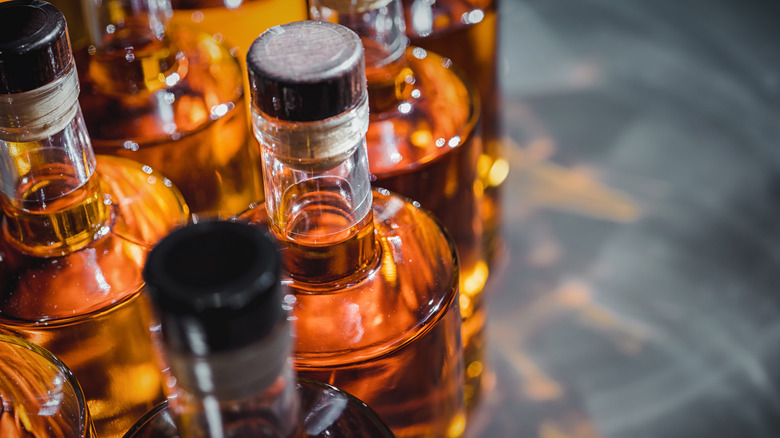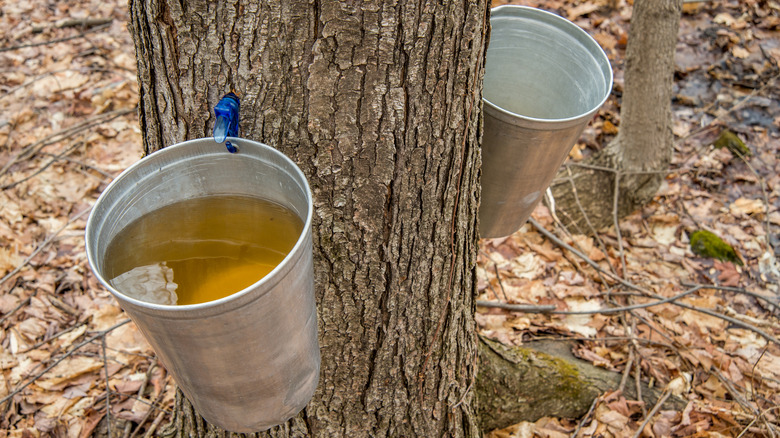How Global Warming Is Impacting Maple Syrup Production
Sorry, French toast fans: maple syrup is at the whims of the weather. Yes, add your breakfast ritual to the list of global warming's latest victims — as if we needed any other reason to combat climate change. No matter which brand of maple syrup you prefer, the rise of global temperatures has begun to inhibit syrup production across major locations.
Last spring, Global News reported that climate change deterred maple syrup production in Canada. Most of the world's maple syrup comes from Canada, though America likewise contributes to syrup production and has shown a similar pattern of impact. Per Gothamist, climate change particularly targeted syrup production in New Jersey and New York, with detrimental effects.
Unfortunately, this year's temperatures have proven somewhat discouraging for syrup tapping. According to the Burlington Free Press, Vermont — which has long been America's pivotal maple syrup state — is the latest target. The reasons climate change has impacted syrup production are multiple and complex. In more ways than one, the rise of global temperatures has threatened maple syrup's longevity. The result of an increasingly warming world? A spiraling impact that's altered both the timeline and taste of maple syrup.
The rise in temperatures has inhibited syrup production -- and sweetness
Savor the syrup in your pantry, because rising temperatures have hit syrup production from all angles. According to the Burlington Free Press, Vermont's sugar makers have had to endure a short harvesting and boiling season. Temperatures this winter reached a record high, and, as is the case with climate change, impacted more than just weather patterns.
Indeed, high temperatures have had a multifaceted influence on maple syrup production. The warmer weather has resulted in more invasive pests and a shorter window for harvesting. Moreover, the reduction of snow during the latest less-than-chilly winters has left bare tree roots exposed. Each of these factors, when compounded, has greatly influenced maple syrup production.
Beyond the production process, warmer winter temperatures have also begun to yield a less sweet maple syrup. Sap has had a lower sugar content than usual. But it's not just winter's fault; global warming has also impacted spring production patterns, with spring frosts capable of shocking and destroying leaf buds.
However, there may still be hope for your pancakes. Freeze-thaw patterns in Vermont mostly remained intact this year, says the Burlington Free Press. While climate change has clearly led to a shift in sugaring, Vermont's syrup producers are learning to adapt to the weather's unpredictability. How this year's syrup harvest will ultimately fare remains to be seen, but perhaps maple production may not be as bleak as it seems — or tastes.

